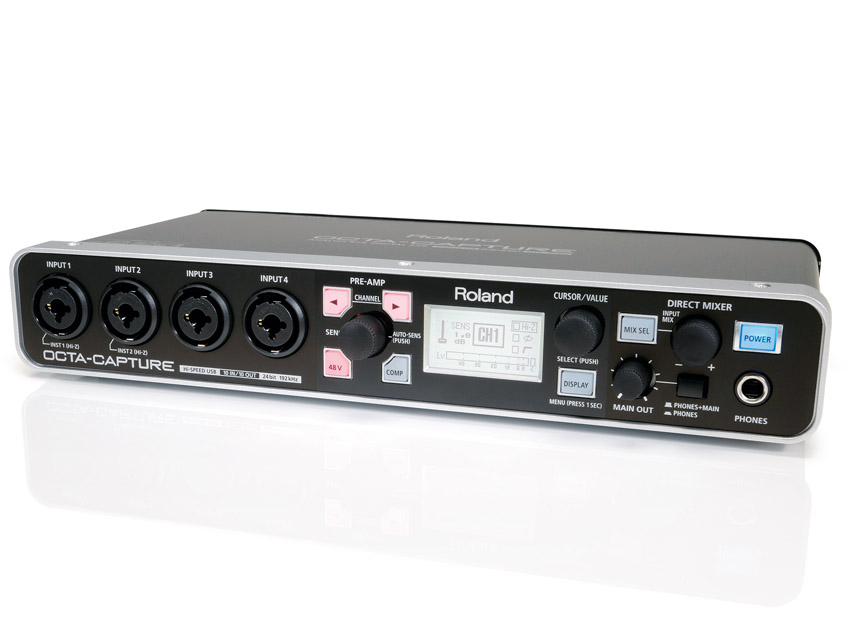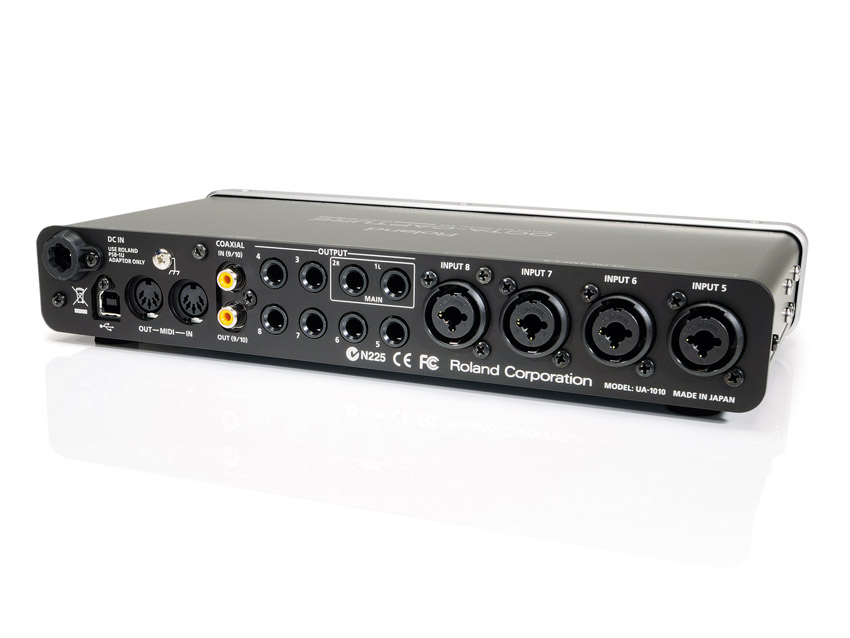MusicRadar Verdict
A sleek and impressive interface with software routing and effects tricks aplenty.
Pros
- +
High quality I/O. Impressive software setup on a 'per channel' basis. Auto-level setup, in-built reverb and more!
Cons
- -
Relatively expensive.
MusicRadar's got your back

Roland Octa-Capture

Roland Octa-Capture
Roland make synths. We all know that and it's tempting to think of this company exclusively in that capacity. And, indeed, Roland were keen to keep 'anything that plugs into a computer' under their Edirol brand in order to maintain this impression.
However in more recent times Roland have stopped hiding their many talents under various brand bushels and so we now have the Octa-Capture: The first Roland branded audio interface.
It's a USB 2.0 interface with Mac and PC compatibility, up to 192kHz recording capabilities, plenty of analogue and digital I/O and high-quality preamps. Sounds good to us.
Octa-vate
Getting started with Octa-Capture involves installing the bundled drivers from CD and, if you like extra goodies, you'll also find a 'Cakewalk Production Plus Pack' disc which includes Sonar LE and assorted instrument and library software.
The interface itself is solidly built with I/O options at front and rear. Four XLR/quarter inch ports adorn the front panel, the first two flexible enough to accept either mic or Hi-Z inputs, while the headphone monitor port lies on the far-right hand side.
Round the back, you'll find an additional four XLR/quarter inch inputs, eight line level outputs, coaxial ins and outs, MIDI in and out ports and the all important USB connection port. That's a very comprehensive set for such a compact box.
The unit requires its own DC power supply which you'll find in the box along with rack ears if you have a spare U of rack space. The rest of the front panel is dedicated to interface setup with the four buttons and rotary controller to the left of the LCD screen assigned as the preamp section.
Want all the hottest music and gear news, reviews, deals, features and more, direct to your inbox? Sign up here.
Software brain
The left and right buttons allow you to shuttle along from one channel to the next while the rotary dial is used to control level sensitivity for each channel in turn, with the graphic display keeping you in touch with levels - a level bar graph helping you to set levels in real time along the bottom.
At first glance, the phantom power button would appear to be global for the whole unit but this too is configured channel-by-channel for each input which is a neat trick.
Also at the preamp stage you'll find a per-channel compressor with fully customisable threshold and gain. Being able to set dynamic control for each and every channel individually brings functionality to Octa-Capture missing from many of its rivals and there are also software controls for phase inversion and low-cut filters for each channel.
You can even trust Octa-Capture to set levels for you by running the Auto Sens(itivity) option. This auditions audio for any given channel over a period of time and sets levels for you based on these results.
The Direct Mixer dial can be used to balance input signals against those coming back from your DAW to set up monitor mixes and Octa-Capture even features a basic reverb unit whose most popular function will be to provide monitor reverb when recording.
All in all, Octa-Capture is an impressive, well-designed and impressively appointed interface which combines high-quality signal I/O with some very neat 'above and beyond' software features. Its sophistication comes at a price but the features and quality here go way beyond more budget interfaces. Well worth a look.
Future Music is the number one magazine for today's producers. Packed with technique and technology we'll help you make great new music. All-access artist interviews, in-depth gear reviews, essential production tutorials and much more. Every marvellous monthly edition features reliable reviews of the latest and greatest hardware and software technology and techniques, unparalleled advice, in-depth interviews, sensational free samples and so much more to improve the experience and outcome of your music-making.
